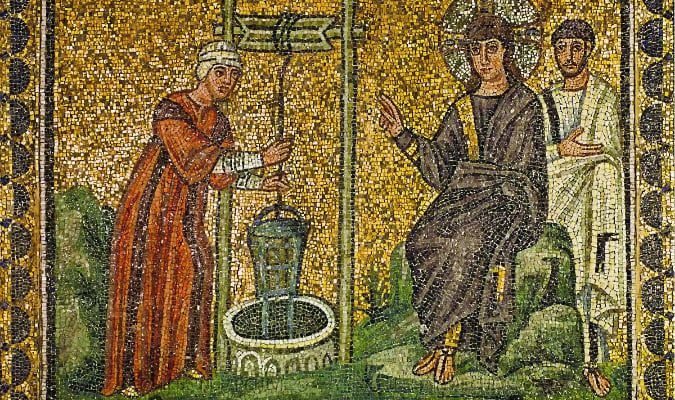This is one to listen to if you really want to get the meaning – and also a bonus joke from Stuart which made everyone crack up during what was otherwise a serious sermon! Click below.
Last week I was talking with a friend about the practice of keeping a diary –and I said that, to me, keeping a diary feels way too risky – because I’d always be afraid of someone else getting ahold of it and then knowing the things about myself I would rather keep hidden.
To which she was like, “Are you kidding me? You’ve published way worse things about yourself in your memoirs than I write in my diary – anyone in the whole world can read about your damage”
True. But not the whole truth. I mean that’s the dirty secret of people who are self-revealing – on some level it’s like voluntarily pleading to a misdemeanor so there’s no felony on your record. it’s really just a tightly controlled PR campaign that on the surface looks like it’s the whole truth. But of course it’s not.
So I’ve been thinking about the hidden things in me–– the stuff where I’d rather die than have it come to light….the damage and sin and shame that I can’t admit to – and how that stuff is such a powerful force in my life that it’s like a propeller.
I think I am not alone. I mean, the wounded parts of me –whether those wounds were inflicted by the sin of others or by my own sin, are what keep me in motion – because I have to try and make up for them, or try and convince myself and everyone else that they aren’t there or I have to try and get them healed by the love and attention of other people even though none of that ever works but wow it sure does keep me in motion.
I mean, I think that if shame could be bottled as an energy source it could easily replace fossil fuels.
It’s weird how many novels we can read and films we can watch where a character’s behavior is finally explained by some damage from their past they are trying to make up for and yet it is so hard to admit this in ourselves.
And this is what I was thinking about all week when I thought about the woman at the well. Because I wondered what propelled her toward a well in the heat of the noon sun and not in the cool of the morning which is when women tended to go to the well
Just parenthetically I think it’s important to say that all we know is that she has had 5 husbands and at the time the man she lived with was not her husband. But we don’t know why. Was she a tramp? Was she a victim? The later is so much more likely than the former. And yet the Samaritan woman at the well has been characterized as a whore throughout history. It’s this thing we do with women…they are either virgins or whores and since the Gospels already has Jesus’ mom the virgin role has been cast – so then all the other women must be whores. As a woman, I’m sick to death of it.
[1]Conservative preacher John Piper’s treatment is characteristic. In a sermon on this passage, he describes the woman at the well as “a worldly, sensually-minded, unspiritual harlot from Samaria” but it feels like that kind of detailed assessment of her says so much more about the assessor than the assessed. And I don’t know about you, but if I went the rest of my life without hearing one more woman-hating interpretation of a Bible story I still would have heard too many.
We don’t know why she’d been married so often – maybe she was a teen bride widowed and passed along through a line of her elderly husband’s elderly brothers or maybe she was divorced for being infertile. The least likely thing is if she lured men into her trap, killed them after a year of marriage and just kept getting away with it. But who knows All I know is that no matter if the wound was self-inflicted or inflicted by others or some combination of the two, she had a wound. Like we all do.
And maybe that wound made her want to not be seen by other women.
We don’t know why she was there at noon, but a safe guess is that maybe it’s sort of like why I took my kids to playgrounds at weird off hours. Because while I wanted my kids to be able to play I also very much wanted to avoid the other moms. I would never belong to their club – like I could never relax around them so I thought it best to avoid them. Maybe the Samaritan woman wanted to fill her water jar but also very much wanted to avoid the other women who traditionally would have been there at first light to avoid the heat of the day. Perhaps she couldn’t relax around them. Perhaps she didn’t want to be seen. Because sometimes being seen is painful even if it is also the very thing we really want.
Yet we heard today how the whole plan of not being seen didn’t work out for her. I imagine her lost in her thoughts, the heat of the noon sun pressing down on her, sweat stinging her eyes as she makes out a figure sitting at the well and she takes a deep breath, braces herself, and makes sure to not make eye contact.
Which doesn’t matter because for some reason he starts talking to her. Not only does he chat with a woman (a big no-no) not only does he chat with a woman who is an ethnic outsider (a bigger no-no) not only does he chat with a woman who is an ethnic outsider who has had 5 husbands (there aren’t enough nos for that one) but this is by far the longest conversation Jesus has with anyone in all of the Gospels.
All of that is amazing but what struck me so deeply this week was how when he says to her that he offers her living water that gushes up to eternal life and when she says Give me this water so that I may not thirst he then goes straight for her wound. She says give me this living water and he asks about her husband.
He wasn’t avoiding the subject – he was avoiding the BS.
You want to stop trying to quench your thirst with things that will never satisfy? You want this eternal life then it starts with being seen. It starts with the truth – the naked truth of your original wound and your original beauty and every good and bad thing about you. You have heard it said that water finds it’s lowest point – well, living water finds your lowest point
The Living water offered by Jesus Christ finds your lowest point. It flows to your original wound. The thing that you spend so much energy trying to heal through all the insufficient ways – relationships, religion, success, more graduate degrees, more therapy, working out, trying to get your parents to love you more. There are a million ways we try to use substitutes for God to try and make sure our damage is not seen.
I’ve mentioned this several times before but Catholic theologian James Allison describes faith not as intellectually ascending to a set of theological propositions, but he describes faith as relaxing. Relaxing in the love and presence of God in the way we relax in the presence of someone we are certain is fond of us. When we are in the presence of someone we are certain is fond of us, we are funnier, more spontaneous, softer and less defended. If I know for sure someone likes and loves me there is no reason to pretend anything. Allison says faith is relaxing. I think this is what happened to the woman at the well. I think living water found a crack in her defenses and trickled down to her lowest point, her deepest wound, her greatest need and she finally exhaled. In fact, she relaxed so much she totally left her water jar at the well.
I’ve always seen her water jar as a metaphor for what we think will quench our thirst but never does. And Oh my gosh do I have some water jars I need to forget about. Things I think will make me whole, hide my wound, make me loveable – I need those jars to just slip from my hand without even caring they are gone.
Because being known and loved and forgiven in our true form by our true God can quench our spiritual thirst in a way that no amount of success or admiration or romantic love or social justice work ever can. I don’t know why this is God’s economy – that our greatest wound, our deepest shame, our greatest sin is also our greatest gift, our greatest teacher. I just know it is.
This is how seen you are by God, good people: that whatever that lowest point of you is, whatever the deepest wound, the vilest sin, the damaged thing in you is, the living water of Christ’s compassion will find it, can find it, has found it.
You can just leave your jars behind.
Amen.
[1] My thanks to David Lose for this.











